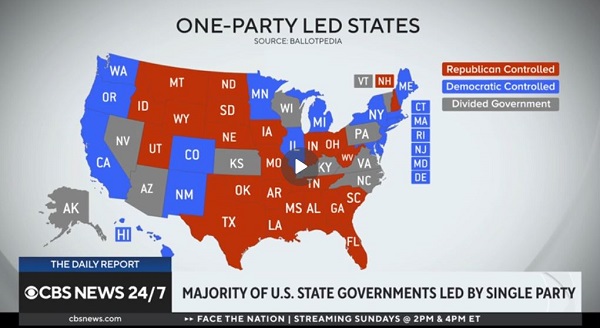Marty Wilde on Grants Pass: The courts won’t save you
5 min read
Don’t rely on judicial activism to solve our social ills
by Marty Wilde
As expected, the Supreme Court upheld the right of governments to fine unhoused people for sleeping on public land.
In a case from Grants Pass decided June 28, the justices voted to overturn a Ninth Circuit precedent holding that governments could not criminalize camping in a park when no shelter space or affordable camping venue was available.
Some believe the decision confirms their belief that the Supreme Court has failed in its duty to interpret the law and write just opinions. Others believe the court merely did its own job; it is the job of the legislative branch—not the court—to enact policies.
From a strictly legal point of view, the decision relied on a technicality – whether or not the imposition of fines on the involuntarily unhoused constitutes cruel and unusual punishment. The court held that it did not.
More generally, the decision was consistent with the Supreme Court’s overall theme of judicial modesty during this session. In their view, it is not the job of the courts to step in when the legislature fails to act; the court’s job is to defer to the legislature’s determinations and to restrain the executive branch from inferring too much from limited legislative language.
This theme runs consistently through this term’s decisions on issues ranging from abortion to bankruptcy to environmental law.
In the past, the Supreme Court took a more active role in filling in the gaps between legislative actions. Roe v. Wade famously found that reproductive rights fell under the penumbras of other enumerated rights in the Constitution and was necessary to support them. In the criminal justice arena, two examples of the ways in which the court has given life to the language of the Constitution by reading in the restrictions on government actions that must inevitably follow are familiar.
One is the exclusionary rule, which enforces the Fourth Amendment’s restrictions on search and seizure and another is the Miranda requirement to inform those in custody of their rights to remain silent and to an attorney, which enforces the Fifth Amendment rights against self-incrimination and to counsel.
There is no substitute for a functional legislative branch. In rolling back judicial expansions of the law, the Supreme Court is telling the Congress, and the people who elect its members, that they cannot rely on the court to fill in when the legislative branch fails to act.
While we may disagree on any particular instance of the court’s actions, it is hard to argue with this premise. The judicial branch is not the branch of government the Constitution gives the authority to enact policy changes; that is the role of the legislative branch.
We should take this to heart when we head to the polls. Why do voters continue to support legislative candidates who promise gridlock? As one advice columnist recently put it in response to a question about a marital disagreement, the value of “being right” about a specific issue in a committed relationship is somewhat less than zero.
Like or not, we as Republicans, Democrats, other party, and non-affiliated voters are in a kind of relationship that requires cooperation to achieve progress. It is up to us to make it work by electing people who will work for the good of all.
The duty of the courts is not to save us from the consequences of our decision to vote for extremist candidates who refuse to work with those whose opinions differ.
The perils of one-party rule
No, for once I’m not talking about Oregon. Former Indiana Gov. Mitch Daniels is as critical of one-party rule (of his own party) there as I am of mine here (Eugene Weekly Letters to the Editor, April 25, 2024).
See also Tsunami Books owner Scott Landfield’s concerns about closed primaries. We all suffer when closed, partisan, low-turnout primaries determine who represents us.
Gov. Daniels estimated that 5% of Indianans effectively elected their next governor, given low turnout and closed primaries.
As a reminder, non-affiliated voters are the largest body of voters in Oregon. They get no vote in primaries.
Race-blind integration
The Supreme Court’s recent decision prohibiting affirmative action in education means that it’s time to look at models of promoting integration that do not rely on racial identification. Brooklyn schools are doing a good job and doing it legally in a way that does not lead to rich family flight from their schools.
New models of mandatory national service
The Senate version of the National Defense Authorization Act requires women, as well as men, to register for Selective Service. Despite the predictable outcry and the likelihood that the language will be eliminated in the final bill, it’s worth engaging in a public discussion of mandatory national service. Indeed, former President Trump’s Defense Secretary has openly mused about it.
Most models provide ample alternatives to military service – think elder care and child care, disaster response, and providing surge capacity to critical parts of the defense industrial base. Few have suggested enforcing the requirement with criminal penalties. Instead, a model mirroring the Swiss seems likely to be more popular. There, those failing to perform mandatory military or alternative civilian service pay an additional 3% income tax for life.
While I don’t expect this to come to much anytime soon, perhaps we should remember, “Ask not what your country can do for you, but what you can do for your country.” Mandatory service instills a commitment to bettering our country and skills at working across societal divides – both sorely lacking these days.
Former Indiana governor and 12th president of Purdue University, Mitch Daniels, wrote a column for the Washington Post that was also published in the Purdue Exponent. President Daniels was interviewed about the column by CBS News.
Marty Wilde represented central Lane and Linn counties in the Oregon legislature. For more of his Letters From a Recovering Politician, subscribe at https://martywilde.substack.com/subscribe.






